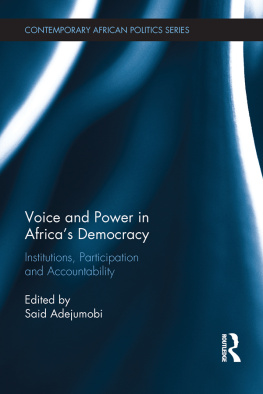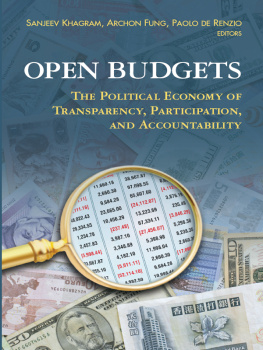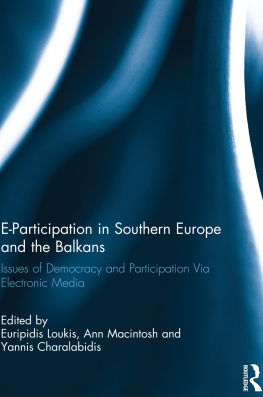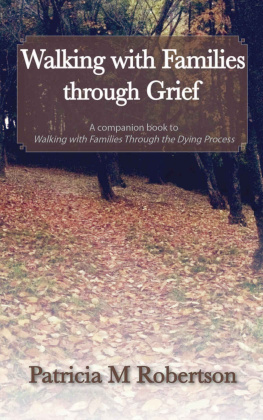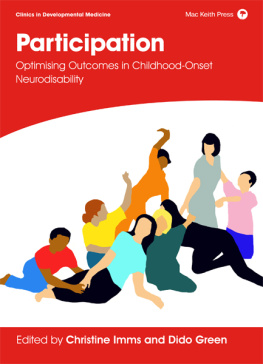Death in Custody: Inquests, Family Participation and State Accountability
Jo Easton
United Kingdom North America Japan India Malaysia China
Emerald Publishing Limited
Howard House, Wagon Lane, Bingley BD16 1WA, UK
First edition 2020
2020 Jo Easton.
Published under exclusive licence by Emerald Publishing Limited.
Reprints and permissions service
Contact: permissions@emeraldinsight.com
No part of this book may be reproduced, stored in a retrieval system, transmitted in any form or by any means electronic, mechanical, photocopying, recording or otherwise without either the prior written permission of the publisher or a licence permitting restricted copying issued in the UK by The Copyright Licensing Agency and in the USA by The Copyright Clearance Center. Any opinions expressed in the chapters are those of the authors. Whilst Emerald makes every effort to ensure the quality and accuracy of its content, Emerald makes no representation implied or otherwise, as to the chapters' suitability and application and disclaims any warranties, express or implied, to their use.
British Library Cataloguing in Publication Data
A catalogue record for this book is available from the British Library
ISBN: 978-1-83909-026-4 (Print)
ISBN: 978-1-83909-025-7 (Online)
ISBN: 978-1-83909-027-1 (Epub)
I dedicate this book to my Gran, who was always incredibly proud of everything I did; and although she is not here to see me get to the end of this long process, I know she never doubted I would get here.
Preface
This book considers the participation of bereaved families following a death in custody in the inquest system, which is often the only independent and open process which looks into the causes and wider circumstances of a death. It looks at the legal frameworks in place governing participation, which is set out in the first main part of this book. Relevant theories of justice, participation, procedural fairness and grief theory are all referenced throughout this book. Interviews were carried out with people with personal experience of complex inquests, grouped as coroners, State officials, representatives of the two relevant investigative bodies, bereaved family members and lawyers who represent families. Analysis of the interviews has been used to create a narrative covering three main parts of this book: firstly, how participation benefits families themselves, secondly, how participation of families benefits the wider system and, thirdly, what important aspects are required to achieve effective participation for families. Each part brings together the evidence collected from the interviews and links them to the legal and theoretical frameworks; identifying key benefits of effective family participation and recommendations on how to achieve said benefits.
Family participation can provide families with redress, allows them to represent the deceased as well as being an important part of their grief process. But it is also important in relation to ensuring a fair process, which subsequently impacts positively on accountability and legitimacy. Family participation can improve accountability by maximising the right outcome (via scrutiny) which identifies any failures, they can bring balance and information to the process and they can assist in dissemination of outcomes (preventing future deaths) via media as well as bring Judicial Reviews which reform custodial institutions in terms of preventing deaths in custody and the inquest system itself. Fair and effective participation can impact on perceptions of how transparent, independent and fair the process is increasing trust, confidence and therefore legitimacy of the system (and sometimes State parties). Fair participation depends upon families being provided with advice and support about the investigation process and their rights, as well as funding for specialist legal representation. Decision-makers who can influence a families' participation should understand the importance of treating families with respect, and openly guaranteeing their rights.
Acknowledgements
The most important people to thank are all of those who I interviewed for this research. I was very fortunate that all interviewees were open with their views and generous with their time. I am especially grateful to the bereaved family members who shared their painful stories. I have treated those stories as respectfully as possible, and hope I have represented their views honestly and fairly.
On a personal level, I am most in debt to Sara and Daragh; who have provided me with endless food and shelter, as well as love and support, over the last few years.
Of course, completing this book would not have been possible without my amazing supervisors. Maurice always seemed to know the right thing to say, especially when I needed a confidence boost. Ellie kindly stepped in to offer words of wisdom when she already had too much to do. And to Lorna, who was there through what felt like an interminable period of time; thank you for somehow seeing the potential through the chaos.
Thanks to the wonderful friends and family who offered to read the thesis when still in draft form. To those of you who struggled with the law, thank you for trying; and to Rachel and Morgane who made it through to the end; you are superstars who obviously had a great teacher! Eternal gratitude to my big brother for proof-reading with an expert eye.
Thank you to Evita and Mark; without whose support I doubt I would have got through the stress of completing a PhD.
Thank you to everyone at INQUEST; especially Debs, Helen and Anna whose expertise was invaluable in giving me the necessary grounding to be able to do this work.
To my colleagues at the Magistrates Association: thank you for indulging my obsession with this piece of work.
Thanks to all my family, friends, work colleagues and random people who I have met along the way who have naively asked about my research topic and been bombarded with hours of detailed discussion about bereavement, deaths in custody and how to achieve accountability. To those who have not abandoned me, I am eternally grateful for your tolerance and I promise to try and find something new to talk about.
To my mum, thank you for everything but especially for reading an early draft and telling me it was perfect, when it was far from it!
Introduction
This book looks at the participation of bereaved families in the investigations following a death in custody. The focus is the inquest system, as this is the primary route by which deaths in custody are investigated, and where there is an established legal right for families to be able to participate. However, in practice, bereaved families are either finding it is very challenging to be able to participate or (where they are able to do so) reporting negative perceptions of whether they found the process fair. This leads to families having little confidence or trust in the process, as well as in State agencies or institutions involved. The author argues that decision-makers are failing to take a process value approach; therefore, they do not sufficiently enable participation by limiting families' access to information, support and respectful treatment. This impacts negatively on the perceived legitimacy of the process, and as the process is the method by which State failings are identified, the legitimacy of the process impacts on the overall legitimacy of the State agencies.


